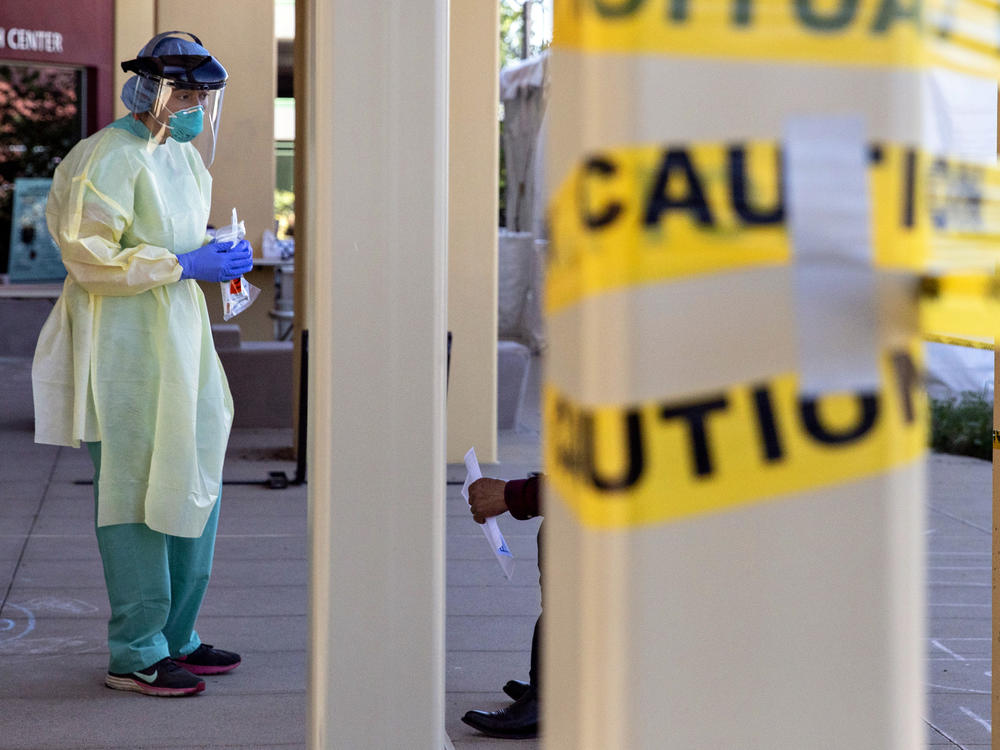Section Branding
Header Content
The federal government pledges $100 million to address health care worker shortages
Primary Content
As health care workers face increased pandemic burnout, some states — particularly in underserved areas — have had challenges retaining existing staff and recruiting new clinicians.
The Department of Health and Human Services (HHS) is now committing $100 million through the American Rescue Plan to help solve the problem.
"Our health care workers have worked tirelessly to save lives throughout this pandemic and now it's our turn to invest in them," Health and Human Services Secretary Xavier Becerra said in a statement.
"This investment is critical to ensuring state public health officials can continue supporting specific needs across their communities," he said.
The funds, which are now open for applications until April 8, 2022, are eligible "for state-run programs that support, recruit, and retain primary care clinicians who live and work in underserved communities," HHS says. The department hopes that being able to retain health care workers in underserved areas will help improve health equity.
In rural areas in particular, the struggle to hire and retain doctors existed long before the pandemic, but the problem has worsened in the past few years with COVID-19. The Bureau of Labor Statistics recently stated that employment in health care is down 524,000 workers since February 2020.
While medical schools have reported that they're graduating more primary care physicians than ever before, the number of those doctors who actually go into the primary care field after residency drops significantly, underscoring the need to help with recruitment efforts.
Since the beginning of the pandemic, surveys have shown a huge increase in stress, burnout, anxiety and depression among health care workers, particularly in women and people of color. Some medical workers have expressed that the exhaustion among staff is affecting patient care, as well.
Copyright 2021 NPR. To see more, visit https://www.npr.org.

